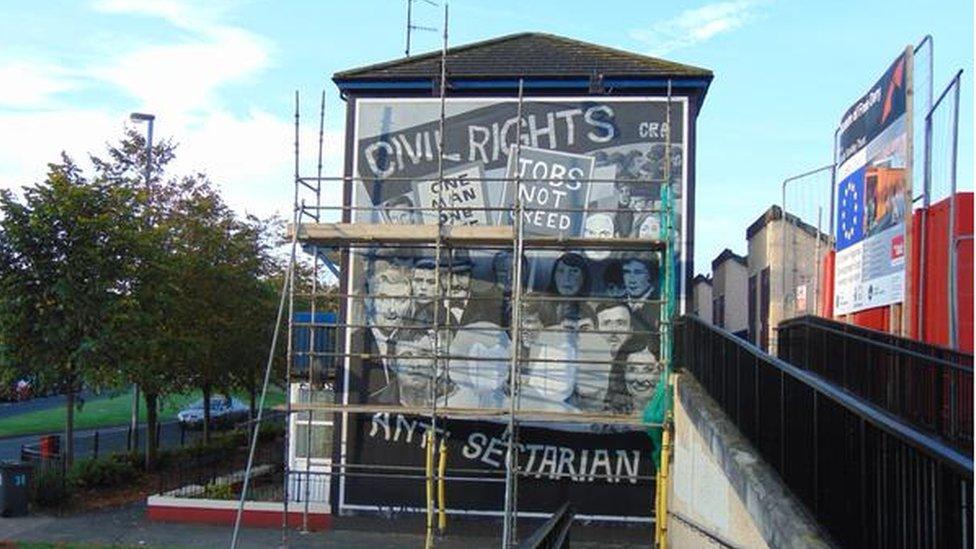Ivan Cooper: Northern Ireland civil rights leader dies
- Published
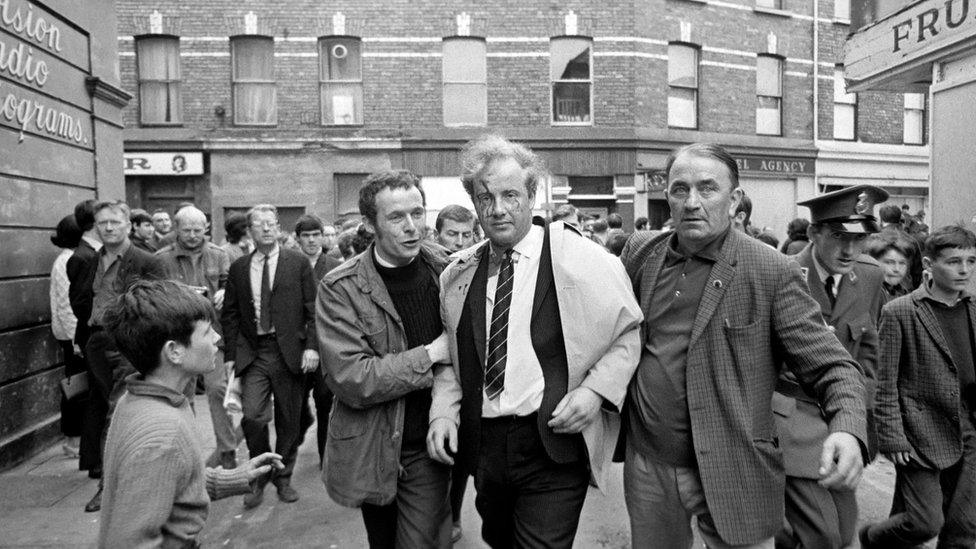
Ivan Cooper was injured in rioting in Londonderry in August 1969
One of Northern Ireland's best-known civil rights leaders, Ivan Cooper, has died aged 75.
Mr Cooper was one of the leaders of the civil rights march in Londonderry in 1972 that ended in 13 people being shot dead on Bloody Sunday.
He was a founding member of the Social Democratic and Labour Party (SDLP) and played a major role in the Northern Ireland Civil Rights Association.
SDLP leader Colum Eastwood said he was "born to break the mould".
Mr Cooper was born into a working-class Protestant and unionist family in Killaloo, County Londonderry, in January 1944.
He was briefly involved in unionist politics before later becoming involved with the civil rights movement and with constitutional nationalism.
'Driving ambition'
Mr Eastwood said Mr Cooper "embodied the contrasting traditions of this island".
"A working class Protestant man who saw a common injustice and inequality that had taken root in Protestant and Catholic communities, he dedicated his life to fighting it," he said.
"As an early leader in the civil rights movement, few have contributed as much to peace and equality on this island than Ivan.
"Alongside his close friend John Hume, he helped blaze the trail on the path that led to the Good Friday Agreement."
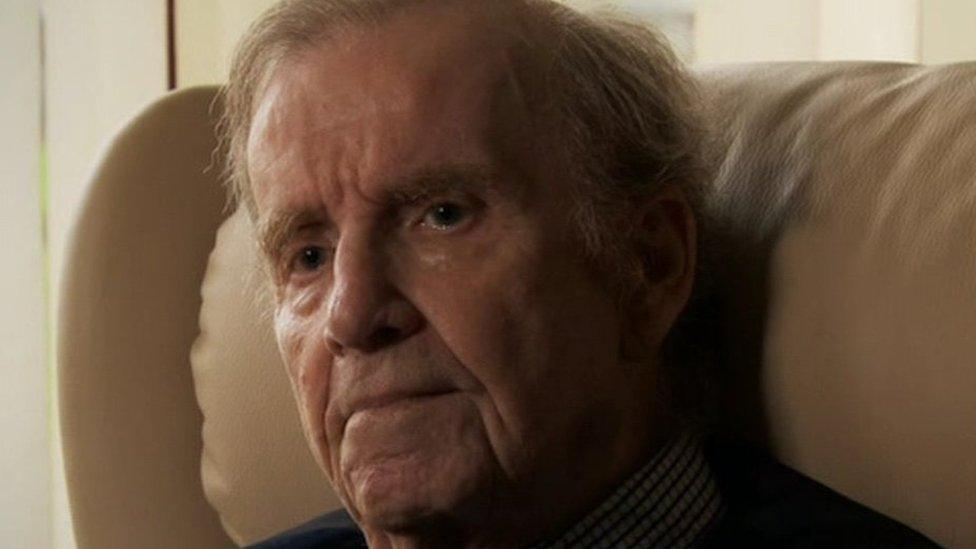
Ivan Cooper served in the short-lived power-sharing executive of 1974
As violence escalated in Northern Ireland, Mr Cooper remained involved in constitutional nationalism, becoming a Stormont MP and eventually community relations minister in the power-sharing executive at Stormont in 1974.
That power-sharing arrangement between nationalists and moderate unionists was brought down by the Ulster Workers' Council strike, supported by the muscle of loyalist paramilitaries like the Ulster Defence Association.
He left active politics in 1983 and went on to work as an insolvency consultant in Derry.
Allow X content?
This article contains content provided by X. We ask for your permission before anything is loaded, as they may be using cookies and other technologies. You may want to read X’s cookie policy, external and privacy policy, external before accepting. To view this content choose ‘accept and continue’.
In a statement on behalf of former SDLP leader John Hume, his wife Pat Hume said: "We are deeply saddened to learn of the death of our dear friend Ivan Cooper.
"Ivan and John walked side by side, hand in hand, in their shared desire for equality, justice and peace in Ireland.
"Ivan was the embodiment of the non-violent and non-sectarian movement for change that was the campaign for civil rights."

Obituary: A man committed to non-violence
Ivan Cooper began as a member of the Claudy Young Unionist Association but, in 1965, he switched to the Northern Ireland Labour Party.
In the late 1960s, he played a major role in the Northern Ireland Civil Rights Association, campaigning for equality.
He became president of the Derry Citizens' Action Committee from 1968 to 1969.
He was passionately committed to non-violence and he believed that both Catholic and Protestants should work together to fight for their rights.
Read more here.

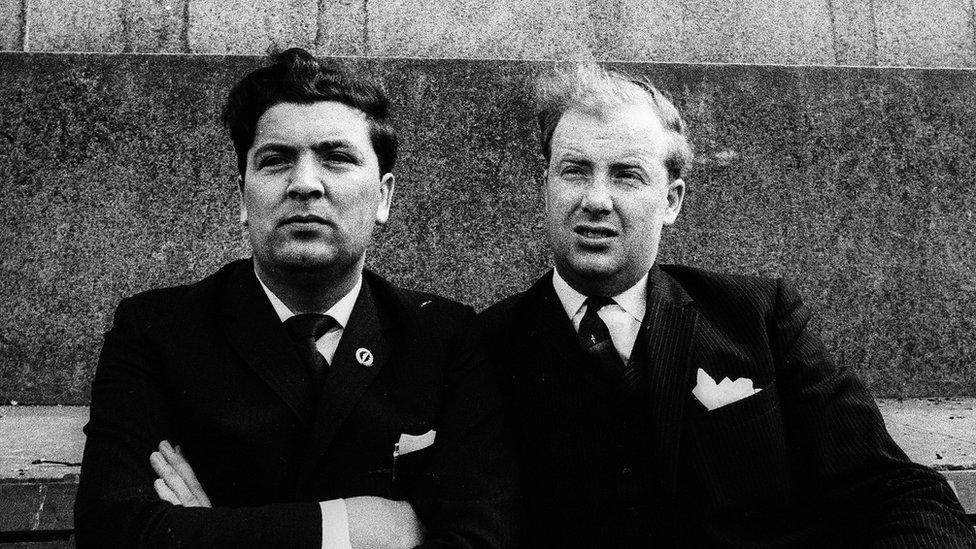
John Hume (left) and Ivan Cooper "walked hand in hand"
"His commitment and courage and his desire and determination to tackle these issues never waned," Mrs Hume added.
"Ivan Cooper will forever hold a special place, not only, in our hearts but in the history of this island and in the continuing of the fight for civil rights and social justice."
Allow X content?
This article contains content provided by X. We ask for your permission before anything is loaded, as they may be using cookies and other technologies. You may want to read X’s cookie policy, external and privacy policy, external before accepting. To view this content choose ‘accept and continue’.
Sinn Féin MP for Foyle, Elisha McCallion, said Mr Cooper "stood up with others and challenged an unjust and unfair system of apartheid and discrimination".
Ulster Unionist Party (UUP) leader Robin Swann said Mr Cooper "made a major contribution to political life in Northern Ireland".
"At a time when many were resorting to violence as a means of achieving political aims, his commitment to purely non-violent, peaceful and democratic methods was an example of how politics should be conducted."
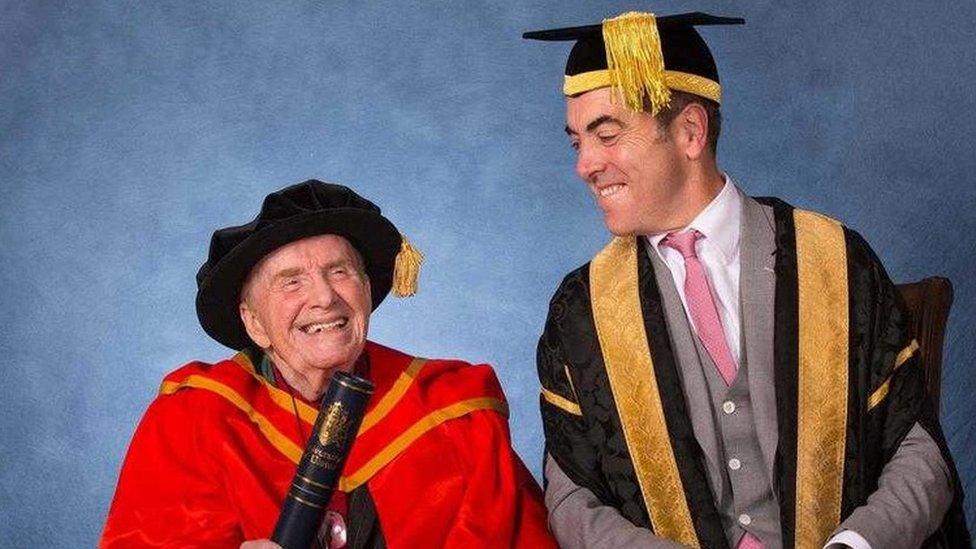
Ivan Cooper received an honorary degree from Ulster University, presented by Chancellor James Nesbitt
Actor James Nesbitt, who played Mr Cooper in the film Bloody Sunday, said: "He will be remembered as a politician of startling courage and conviction who passionately believed in equality for all.
"On a personal note his impact on my career was inestimable. Playing him in Bloody Sunday was a privilege and also a huge responsibility. Professionally it changed my life."
Irish President Michael D Higgins paid tribute, describing Mr Cooper as "a beacon of hope" and "the embodiment of the power of non-violent actions in pursuit of justice".
"His work as a campaigner in the 1960s was rewarded when he won the largest political mandate of any nationalist member of the parliament of Northern Ireland and his legacy of personal courage, leadership and the dedication to the cause of justice continues to inspire activists and politicians alike," he added.
A book of condolence has been opened at the Guildhall in Derry by the Mayor of Derry City and Strabane District Council Michaela Boyle.
- Published26 June 2019
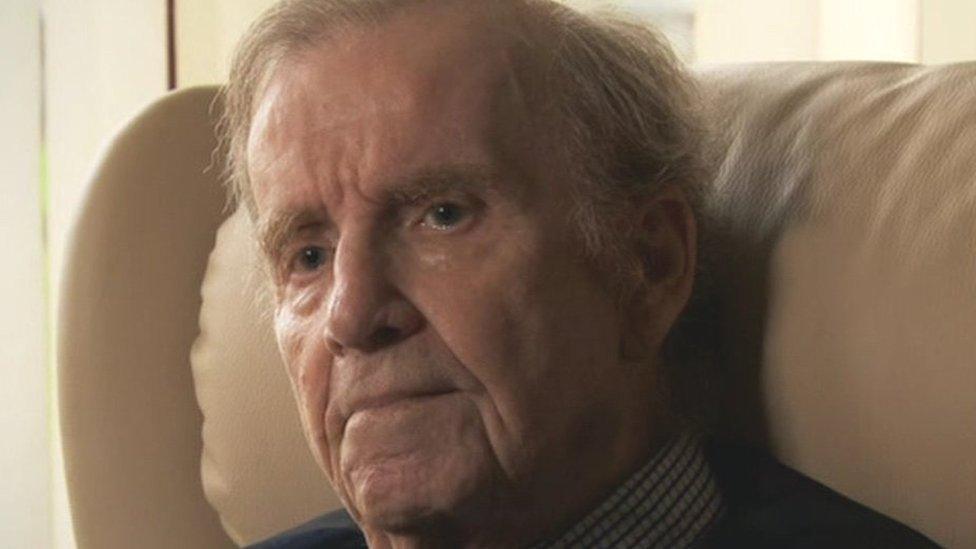
- Published16 October 2015
